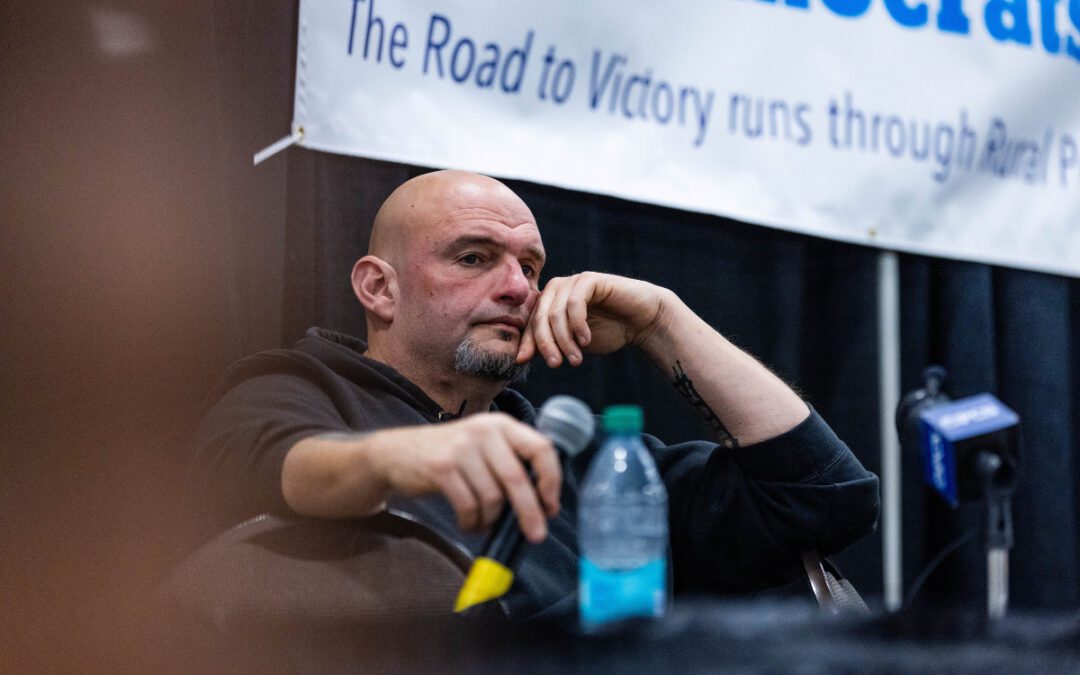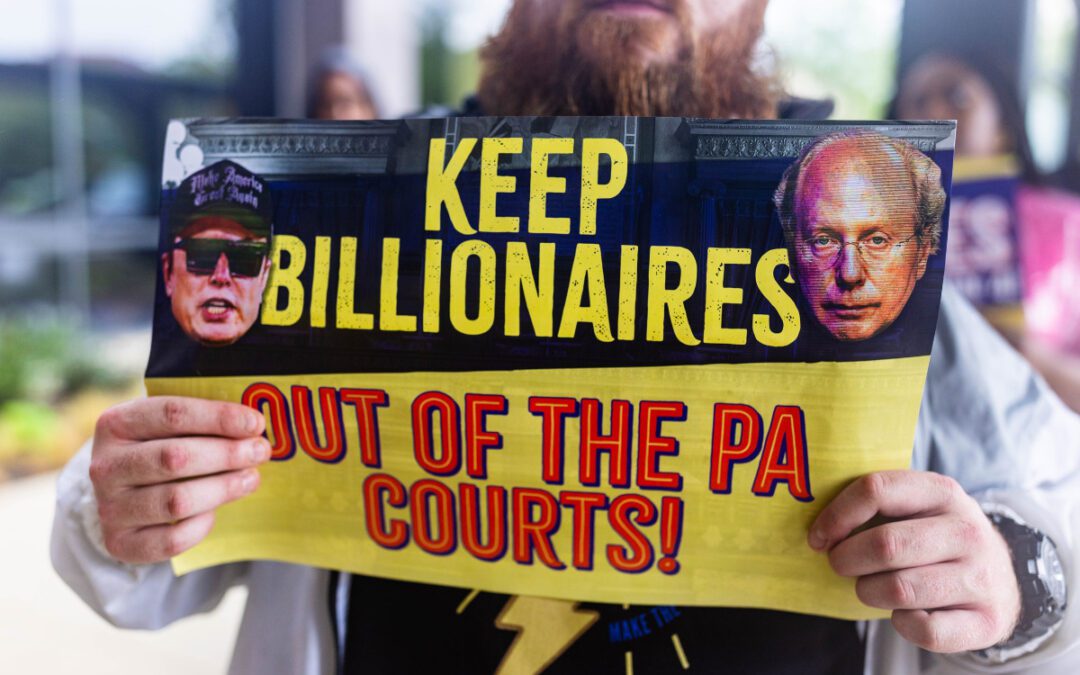
FILE - In this Sept. 16, 2019 file photo, union members picket outside a General Motors facility in Langhorne, Pa. General Motors CEO Mary Barra joined negotiators at the bargaining table Tuesday, Oct. 15, an indication that a deal may be near to end a monthlong strike by members of the United Auto Workers union that has paralyzed the company’s factories. (AP Photo/Matt Rourke, File)
Even though there has never been a nationwide general strike, mass strikes have played a large role in Pennsylvania history.
Chicago Mayor Brandon Johnson received a lot of attention on Saturday after he called for a nationwide general strike to defeat President Donald Trump’s authoritarianism and corruption through his support of the country’s ultra wealthy during his city’s “No Kings” rally.
“We are going to make them pay their fair share in taxes to fund our school, to fund jobs, to fund healthcare, to fund transportation,” Johnson said. “Democracy will live on because of this generation. Are you ready to take it to the courts and to the streets?”
What is a general strike?
General strikes happen when workers and unions from multiple sectors and industries go on strike to bring a country’s, or a region’s, economic activity to a halt. The end goal is to bring social and economic change to a specific sector or society as a whole.
Has a general strike happened in Pennsylvania?
Yes, there have been multiple general strikes throughout Pennsylvania’s history. In fact, Philadelphia was home to the country’s first general strike in 1835.
According to City Cast Philadelphia, coal heavers working along the Schuylkill River went on a strike seeking a 10-hour workday in May 1835. This strike grew to encompass over 40 trades and 20,000 workers by June, and, at the end of the month, they eventually won a 10-hour workday.
A second general strike occurred in March 1910 when the Philadelphia Rapid Transit Company fired 173 workers associated with Amalgamated Association of Street and Electric Railway Transit Employees of America. The Central Federated Union called for a general strike to support the fired workers, and over 140,000 walked off the job.
Then, in 1919, there was the Great Steel Strike of 1919, when 350,000 US Steel workers walked off the job across the country. This strike was centered in Pittsburgh, and during World War I, workers in the industry had shorter hours, better pay and a promise of union recognition.
That changed immediately after the war ended as the steel companies began harassing the workers and denied organizers from entering the region. The strike eventually collapsed in January 1920 when the American Federation of Labor (AFL) did not have the funds to support its members.
Why general strikes are rare
While there have been national strikes such as the Great Railroad Strike of 1877 or the Great Steel Strike of 1919, there has never been a national general strike in the history of the US.
Erik Loomis, a labor historian, points out that general strikes are so rare in the country’s history because they are hard to organize and banned by the Taft-Hartley Act of 1947.
Taft-Hartley limits labor’s ability to strike and bans political or sympathy strikes, which happen when members of one union strike in sympathy with members of another union who are on strike. It also allows states to undermine labor regulations even further by giving them the power to pass “right to work” laws, which are designed to drain union resources by allowing non-union members to be protected by the union without having to pay for union services through fees.
Earlier this month, A.J. Schuman, with Inequality.org, said he believes that the country is ripe for a general strike regardless of the barriers that could prevent one from happening.
“These obstacles are real. But strikes are not born of ideal conditions; they arise precisely because conditions have become intolerable,” Schuman writes. “Which makes now—with economic inequality rapidly accelerating and authoritarianism knocking at the door—exactly the right time to revive the general strike.”
Support Our Cause
Thank you for taking the time to read our work. Before you go, we hope you'll consider supporting our values-driven journalism, which has always strived to make clear what's really at stake for Pennsylvanians and our future.
Since day one, our goal here at The Keystone has always been to empower people across the commonwealth with fact-based news and information. We believe that when people are armed with knowledge about what's happening in their local, state, and federal governments—including who is working on their behalf and who is actively trying to block efforts aimed at improving the daily lives of Pennsylvania families—they will be inspired to become civically engaged.


Pa. congressman calls on colleagues to reject deal to end shutdown without health care plan
Premiums are expected to nearly double or even triple in some cases for almost 500,000 Pennsylvanians if tax credits expire. Late Sunday night,...

Shutdown-ending vote reveals rift among Democrats
Some Democrats are left wondering why eight of their own caved on Sunday to end the government shutdown following major election victories. ...

Pa. Democrats gain ground in Trump counties following election
Democrats scored wins in parts of Pennsylvania that supported President Donald Trump during the 2024 election. In statewide and county and municipal...

Billionaire Jeffrey Yass named as donor to Trump’s $250 million White House ballroom
This is the latest in a long history between Jeffrey Yass and President Donald Trump. Jeffrey Yass, Pennsylvania’s richest billionaire and GOP...

George Santos came to the Poconos after Trump commuted his prison sentence
After being released from prison on Oct. 17, Republican former congressman George Santos didn’t waste any time enjoying his freedom. And where did...





